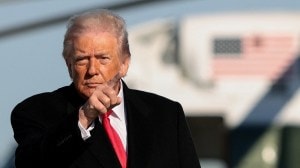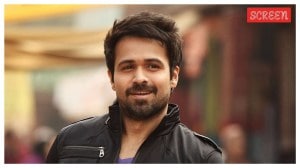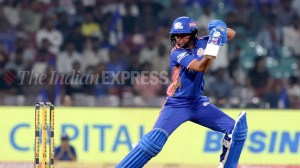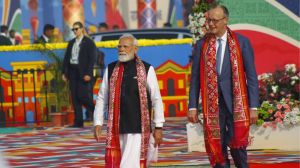IT TAKES ALL KINDS8230;
THANKS to his association with several sunrise industries over the years, marketing man Raghu Iyer has seen many dawns.

8230; to make IPL a success. Sandeep Dwivedi meets marketing big-wigs, forgotten former players and a couple of talking heads while running through the line-up of IPL8217;s unconventional administrators
THANKS to his association with several sunrise industries over the years, marketing man Raghu Iyer has seen many dawns. With a CV that showcases top-level corporate experience with telecom, media and television giants in their initiatory days in the country, Iyer has had a ringside view of several booms. These days he shuttles between Mumbai, Delhi and Jaipur as the chief marketing officer of Indian Premier League IPL franchise Rajasthan Royals, awaiting another dawn and the resultant boom.
The excitement of this unique enterprise and the sub-conscious push of the cricket fan genetically ingrained in each Indian has seen many corporates take guard on the cricket field. Though joining a franchise is an option not exclusive to the B-school types, behind the scenes, away from the slam-bang action on the field, there is an army of men from diverse backgrounds who have silently jumped on to the IPL bandwagon.
Former cricketers have been dusted and relaunched. Several officials have left the Board of Cricket Control in India8217;s fold to enjoy the game8217;s privatisation. Famous commentators have overnight changed their profiles. And several retired sports journalists, with the nose of news, haven8217;t missed the whiff of opportunity floating in the air.
Rajasthan Royal man Iyer speaks to us of the reason for his involvement with the IPL, also explaining the sudden mushrooming of these unconventional cricket administrators.
8220;We all want to have a say in cricket administration. But getting into the BCCI has always been tough. So when the opportunity came to be part of a cricketing setup, I jumped at it,8221; he says. After being neck-deep in work for the last two months, Iyer says that the switch was worth it for more than one reason. His main focus these days is to take care of brand Rajasthan Royals8217; visibility and marketing 8212; a far cry from the days when he was doing the same for Discovery channel.
But the most memorable meeting for the man, who indulged in various sports during his college days, was the meeting he had with his franchise team captain and Aussie great Shane Warne.
Dreams come true
8220;There are several of my batchmates who earn a lot working as investment bankers, but they can only dream of sitting with the world8217;s greatest bowler and discussing strategies with him,8221; says Iyer, who isn8217;t embarrassed to say that within 10 minutes of the meeting, he asked Warne about the famous 8216;ball of the century8217; the legend bowled to Mike Gatting.
Actually, there happens to be one of Iyer8217;s former classmates at Narsee Munji Institute of Management Studies who can match these cricketing stories. Sundar Raman is the CEO of IPL 8212; an assignment that opens his off-the-field cricketing innings. While Iyer has names like Hutchison Max, Sony Entertainment, Reuters and Discovery on his CV, Raman is credited with working out the marketing strategy for brands like Unilever, PepsiCo, Motorola, Samsung and Amex.
The biggest challenge that Sundar is dealing with these days is to sell the brand-new concept of a city-based league in a country obsessed with Team India. 8220;Cricket in India has always been a sellable brand. Cricketers are also among the country8217;s biggest brand ambassadors, after all. Twenty20 itself is very exciting and India8217;s success in the version8217;s World Cup added to that excitement. The matches will be held in eight major cities across the country, where the following for the game is immense. Therefore, I have no reason to think a city-based league structure won8217;t be successful,8221; says a confident Sundar.
Another heavyweight who has crossed to an IPL franchise is Ravi Krishnan, the former Managing Director South Asia of the International Management Group. He now happens to the vice-president of the Rajasthan Royals.
New challenges
Along with the management big-wigs, there are several retired cricketers who have suddenly surfaced and extended their non-playing association with cricket. Sunil Valson is famous as one of Kapil8217;s Devils since 1983. But now, he is a Delhi Daredevil.
Valson had intentionally kept a distance from cricket all these years, but the IPL proved too tempting for the 49-year-old.
The former left-arm pacer8217;s job these days is to make the supporters8217; trip to the Kotla memorable.
8220;I have to provide a good three-hour experience for the crowd. They should have a feeling akin to going for a movie, for instance, where you get your money8217;s worth. They need to relax, enjoy and go back home satisfied. Being a cricketer, I know the requirements of a cricketer, so I can take care of them too,8221; says Valson of his new job profile.
Making it an interesting mix outside the boundary line are famous cricketing talking heads Harsha Bhogle, Charu Sharma and BCCI8217;s former media man Amrit Mathur. Bhogle is the strategist in Mumbai Indians8217; think-tank, Sharma the CEO of Bangalore Royal Challengers and Mathur, like Valson, is the logistic man for Daredevils.
Ask Sharma about his vital position in the franchise and one can feel the excitement in the voice.
8220;I have always been a huge fan of the game and fortunately my profession also revolved around it. To be part of the Bangalore team today is not just about the challenge of learning something new, but understanding and ensuring that this game can be taken to newer levels,8221; he says.
Sharma isn8217;t the only fan-turned-administrator as most men in sharp suits switch to their team8217;s training gear in the evening. Contrary to the mood but in tune with this season of the billion dollar league, one asks these administrators if the 8216;package8217; they take home is competitive. The Rajasthan Royals marketing man smiles with the answer: 8220;Certainly not what the investment bankers earn, but it is enough for my family to get two square meals and pay for my children8217;s school fees.8221;
With inputs from K Shriniwas Rao and GS Vivek
- 01
- 02
- 03
- 04
- 05































